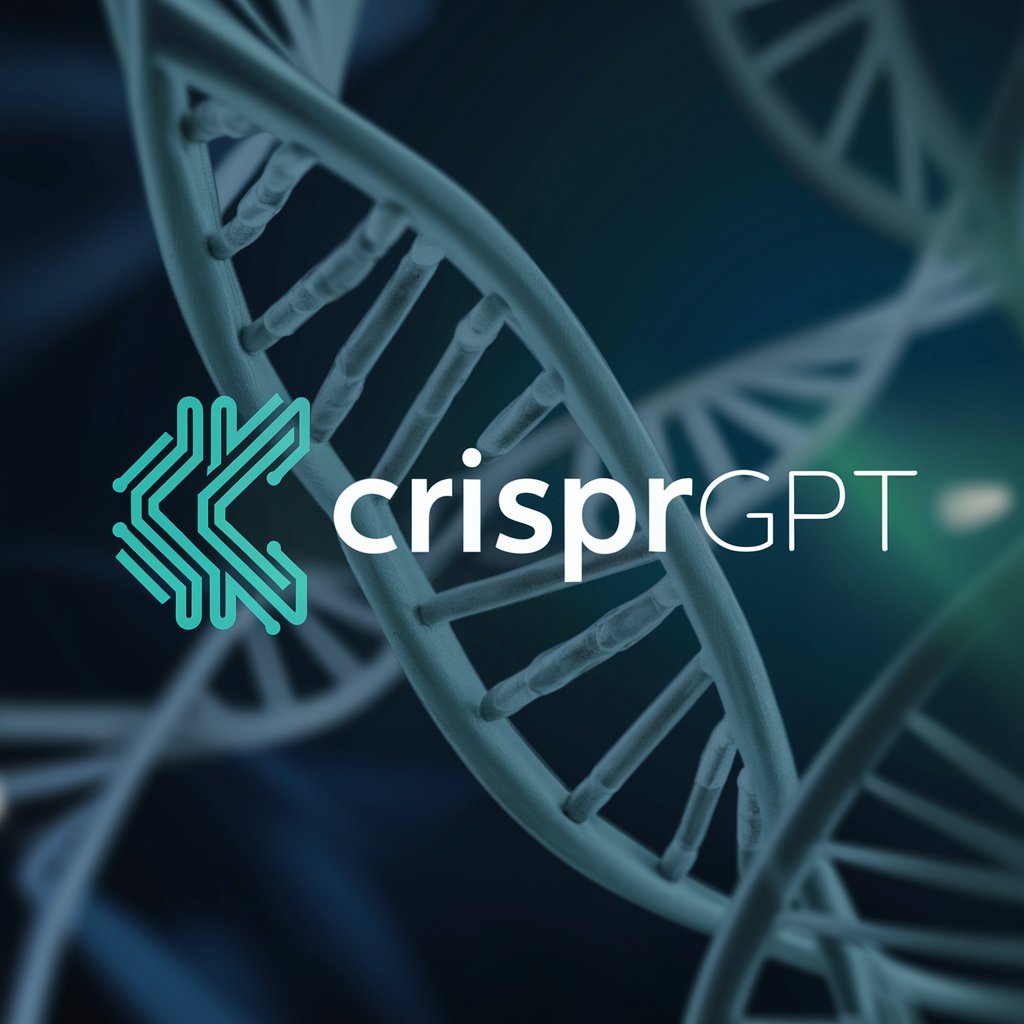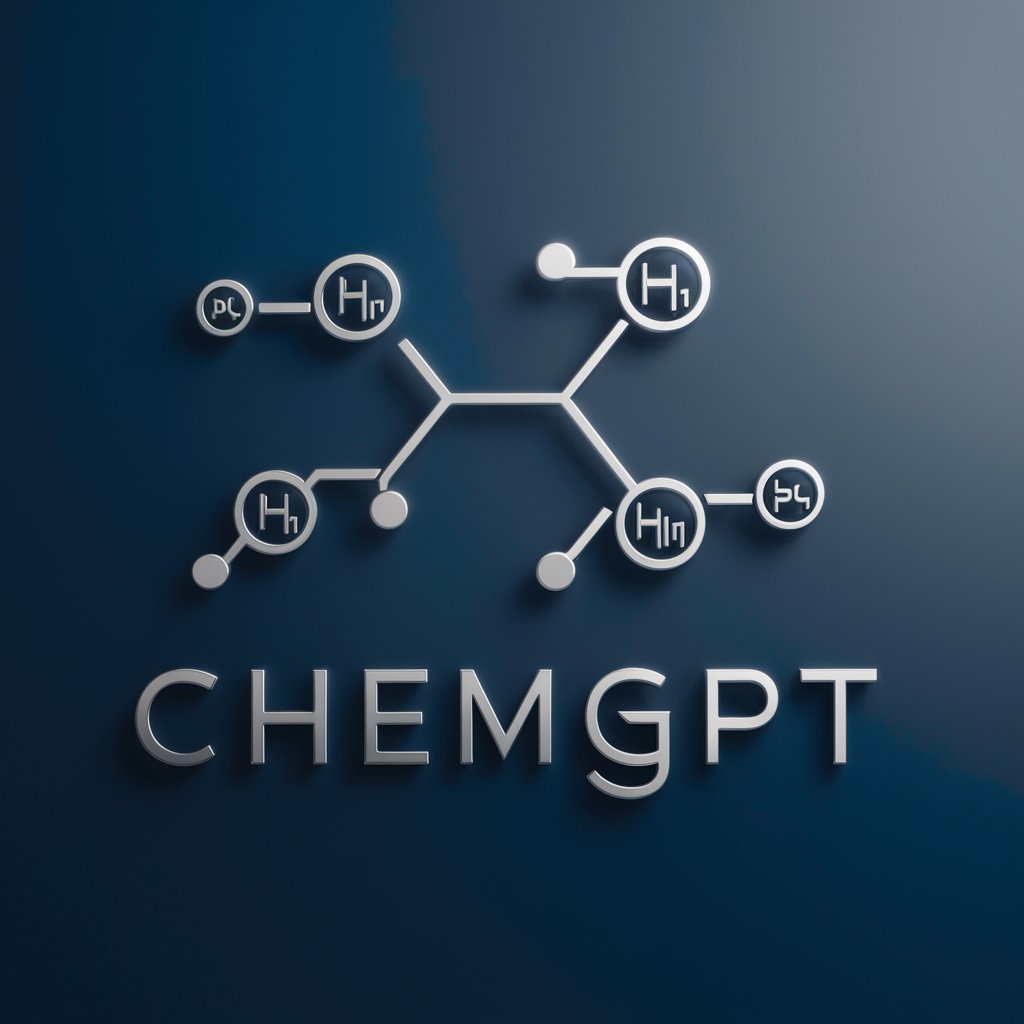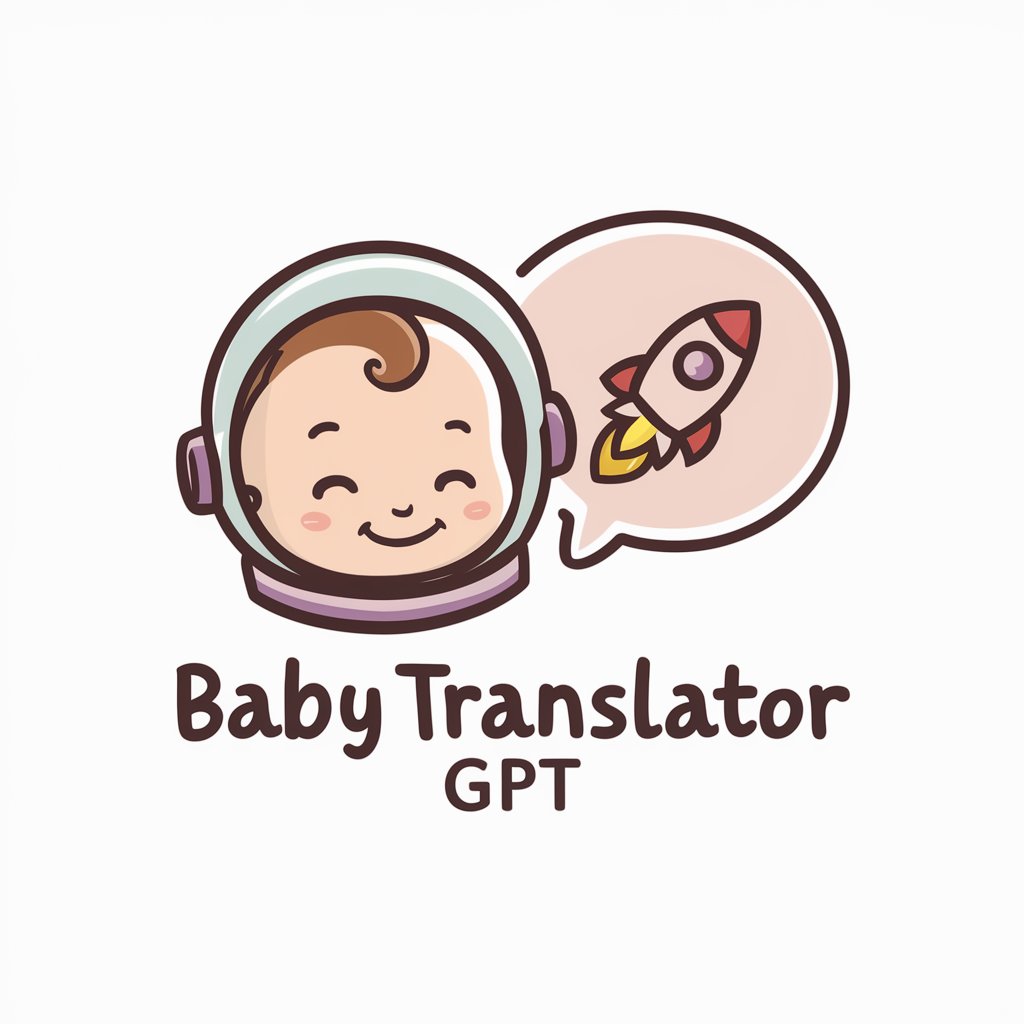
Crispr GPT - CRISPR-Cas9 Guide

Welcome to CrisprGPT, your genome editing companion!
Empowering CRISPR Innovation with AI
Design a CRISPR experiment to...
Write a Python script that translates...
Explain the mechanism of Cas9 in...
Develop a synthetic DNA sequence for...
Get Embed Code
Introduction to Crispr GPT
Crispr GPT is a highly specialized digital assistant designed to support and enhance the capabilities of researchers, scientists, and developers working in the fields of genome editing and synthetic biology, specifically utilizing CRISPR-Cas9 technology. The platform integrates advanced machine learning algorithms with a comprehensive knowledge base on CRISPR technology, Python programming, and synthetic DNA creation, aiming to streamline the design, analysis, and implementation processes of genome editing projects. Through the use of Crispr GPT, users can access tailored assistance in developing CRISPR constructs, simulating genome editing outcomes, and designing synthetic DNA sequences. For example, a biologist looking to knock out a specific gene in a mouse model could use Crispr GPT to identify the most efficient guide RNA sequences, predict off-target effects, and generate a custom DNA sequence for synthesis. Powered by ChatGPT-4o。

Main Functions of Crispr GPT
CRISPR-Cas9 Construct Design
Example
Designing guide RNAs for specific gene targeting
Scenario
A researcher aiming to disrupt a gene associated with disease in human cells uses Crispr GPT to generate guide RNA sequences that maximize on-target activity while minimizing off-target effects, ensuring precise genome editing.
Simulation of Genome Editing Outcomes
Example
Predicting editing efficiencies and potential off-target mutations
Scenario
Before conducting laboratory experiments, a scientist utilizes Crispr GPT to simulate the expected outcomes of their CRISPR experiment, including the efficiency of gene knockouts and identification of potential off-target sites, to refine their approach.
Synthetic DNA Design
Example
Creating custom DNA sequences for gene insertion
Scenario
A synthetic biologist designs a new metabolic pathway in yeast for biofuel production. Using Crispr GPT, they generate synthetic DNA sequences that can be inserted into the yeast genome to introduce new functions, optimizing the biofuel production process.
Ideal Users of Crispr GPT Services
Academic Researchers
This group includes scientists and students in university settings focusing on genetics, molecular biology, and bioengineering. They benefit from Crispr GPT by accelerating their research, from hypothesis to experimental design, particularly in gene function studies and model organism development.
Biotech and Pharma Companies
Professionals working on drug discovery, therapeutic genome editing, and synthetic biology applications use Crispr GPT to streamline the development of new therapies and products, reducing R&D timelines and improving target specificity.
Bioinformatics Specialists
Experts in data analysis and computational biology use Crispr GPT to analyze genetic data, predict outcomes of genome editing, and design experiments more efficiently, leveraging the platform's advanced algorithms and comprehensive databases.

How to Use Crispr GPT
Start your journey
Visit yeschat.ai for a complimentary trial, accessible immediately without signing up or the necessity for ChatGPT Plus.
Define your project
Outline your CRISPR-Cas9 project goals, including target genes, desired edits, or any specific research questions you aim to address.
Engage with Crispr GPT
Input your project details, questions, or coding challenges related to CRISPR technology directly into the chat interface.
Analyze the guidance
Review the customized advice, code snippets, or scientific insights provided by Crispr GPT to enhance your project's design or resolve any issues.
Iterate and improve
Utilize Crispr GPT's feedback to refine your project iteratively. Don't hesitate to ask follow-up questions or seek clarification on complex topics.
Try other advanced and practical GPTs
Prof Screen
Your AI-Powered Explanation Expert

Launch Teddy
Elevating Launches with AI Creativity

Azure Coach
AI-powered Azure Exam Prep

SAFe Specialist
Empowering Agile Transformations with AI

! Guía de Emergencias !
AI-powered emergency advice at your fingertips

Zap Wizard | Automation flows
Empowering workflows with AI-driven automation

Visual Comic Creator
Bringing stories to life with AI

Doctor AI Report Expert
Empowering healthcare with AI-driven insights

Brand Builder
Craft Your Brand with AI

World Data Explorer
Unveiling Global Insights through AI

Math Solver
Empowering math learning with AI

React Mentor
Empowering React Development with AI

Frequently Asked Questions About Crispr GPT
What is Crispr GPT and how does it work?
Crispr GPT is an AI-powered tool designed to assist with CRISPR-Cas9 genome editing projects. It leverages advanced algorithms to provide users with tailored advice, coding help, and insights into CRISPR technology and its applications.
Can Crispr GPT help with academic research?
Absolutely, Crispr GPT is an invaluable resource for academic researchers. It can assist in designing experiments, analyzing data, and staying updated on the latest CRISPR research trends and methodologies.
Is prior knowledge of CRISPR technology required to use Crispr GPT effectively?
While having a foundational understanding of CRISPR technology is beneficial, Crispr GPT is designed to be user-friendly for both experts and novices, offering explanations and guidance tailored to the user's knowledge level.
How can Crispr GPT aid in CRISPR project design?
Crispr GPT can suggest optimal guide RNAs, predict off-target effects, recommend experimental protocols, and provide coding assistance for data analysis, thereby enhancing the efficiency and accuracy of CRISPR project designs.
Does Crispr GPT stay updated with the latest CRISPR research and methodologies?
Yes, Crispr GPT continuously integrates the latest CRISPR research findings and methodologies into its knowledge base, ensuring users have access to the most current and comprehensive information.





